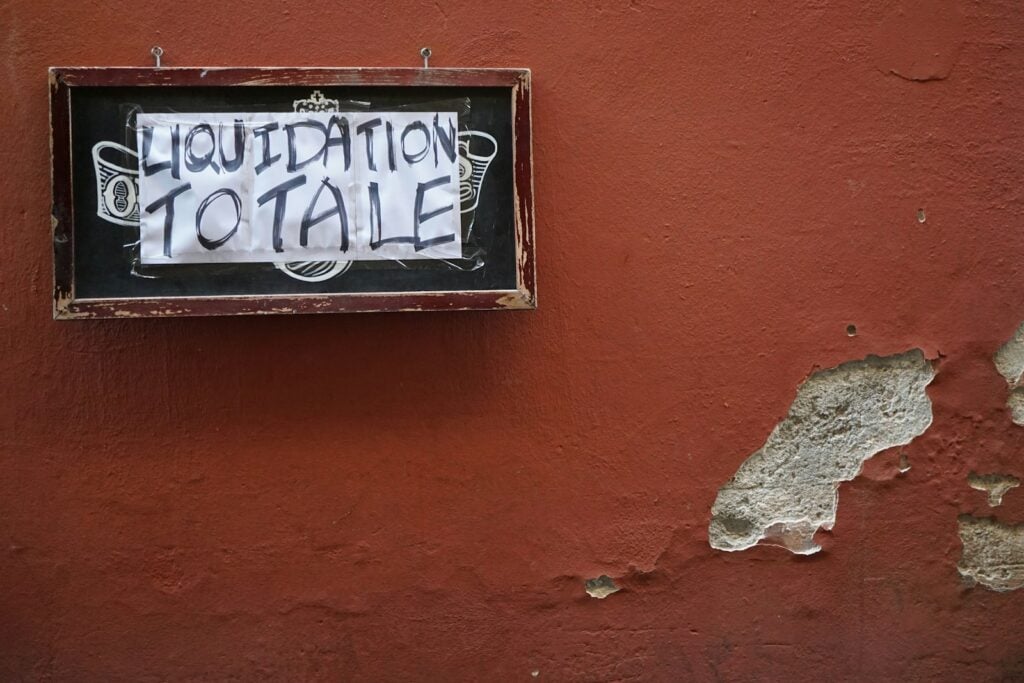The question of whether you are obliged to be represented by a lawyer before the Commercial Court has changed significantly in recent years. Previously optional in most cases, such representation is now subject to a general principle of obligation, with some important exceptions. This transformation considerably alters the approach to commercial litigation and should be clearly understood by any company likely to be involved in a dispute before this court.
The strengthened principle of compulsory representation by a lawyer
The reform of civil procedure that came into force in 2020 has radically altered the rules governing representation before the Commercial Court. These changes are part of a wider trend towards more professional legal proceedings.
Background to the reform of civil procedure
Until the end of 2019, the Commercial Court was characterised by a high degree of procedural flexibility. Parties could defend themselves or be represented by a person of their choice, without being obliged to consult a lawyer. The reason for this freedom was the historic desire to maintain a commercial justice system that was accessible, fast and inexpensive.
However, Decree no. 2019-1333 of 11 December 2019 on the reform of civil procedure reversed this principle. The decree, which came into force on 1 January 2020, introduced the obligation to be represented by a lawyer as the general rule before the Commercial Court. Article 853 of the Code of Civil Procedure now states that "unless otherwise provided, the parties are required to constitute a lawyer before the Commercial Court".
Scope of the principle before the Commercial Court
This obligation to be represented by a lawyer applies to all parties to the dispute, whether they are plaintiffs or defendants. The appointment of a lawyer automatically entails election of domicile, which means that all notifications and service of documents will be validly made at the address of the appointed lawyer.
The principle applies to both natural and legal persons, whatever their legal form. However, the State, the regions, the départements, the communes and their public establishments benefit from a special regime: they may be represented by a civil servant or an agent of their administration, without the need for a lawyer.
Who can be a candidate lawyer?
Unlike the procedure before the judicial court, which imposes rules on territorial postulation, there are no geographical limitations on representation before the commercial court. A lawyer registered with any French bar can represent a party before any commercial court in France.
This lack of territoriality of postulation is a practical advantage for companies with establishments in different regions, which can retain their usual counsel for all their commercial disputes, regardless of where the dispute arises.
The same rules apply to lawyers who are nationals of the European Union, the European Economic Area or the Swiss Confederation, subject to compliance with the conditions of practice set out in the relevant legislation.
Legal exceptions to the principle of compulsory representation
Although the general principle is now that representation by a lawyer is compulsory, the legislator has made several notable exceptions.
Disputes involving small amounts
The first exception concerns disputes of minor financial importance. Article 853 of the Code of Civil Procedure dispenses with the obligation to instruct a lawyer when the claim is for an amount less than or equal to €10,000.
This exemption also applies where the claim arises from the performance of an obligation not exceeding the same amount. In these cases, the amount of the claim is assessed in accordance with the provisions of articles 35 to 37 of the Code of Civil Procedure, which set out precise rules for calculating the value of the dispute.
This exception is clearly intended to preserve access to commercial justice for smaller disputes, by ensuring that the cost of legal representation does not constitute an obstacle disproportionate to the financial stakes involved.
Collective proceedings
Another major exception concerns procedures covered by Book VI of the Commercial Code, i.e. all collective procedures: safeguard, receivership, compulsory liquidation and professional recovery.
The exemption from compulsory representation in this area can be explained by several factors. Firstly, certain proceedings may be initiated voluntarily by the debtor. Secondly, insolvency proceedings often involve companies in financial difficulty, for which the cost of a lawyer could represent an additional burden that would be difficult to bear.
However, the complexity of these procedures and the considerable stakes involved generally make the assistance of a lawyer advisable, even if it is not legally obligatory. Many practitioners recommend enlisting the services of a specialist lawyer as soon as difficulties arise, to maximise a company's chances of recovery.
Certain specific subjects
Other exceptions concern specific disputes, in particular disputes relating to the keeping of the register of companies. For these specific procedures, representation by a lawyer remains optional.
In addition, the texts provide that the parties are exempt from the obligation to appoint a lawyer "in the cases provided for by law or regulation". This open-ended wording makes it possible to incorporate other exceptions established by special provisions.
The possibility for parties to defend themselves in such cases
In all the cases of exemption mentioned above, the parties may defend themselves or be assisted or represented by any person of their choice. However, this flexibility is not absolute.
Indeed, case law has established an important limit: the activity of assisting and representing parties before the commercial courts is prohibited to persons who make a habitual and remunerated profession of it, unless otherwise provided. This restriction is intended to preserve the monopoly of lawyers to represent parties in court on a professional basis.
If the litigant chooses a representative other than a lawyer, the latter must have special authority, i.e. a specific written mandate for the proceedings in question. Failure to do so may result in the acts performed being annulled on substantive grounds.
Why use a lawyer even when you don't have to?
Even in cases where legal representation is not legally required, there are a number of reasons why it may be advisable to use the services of a lawyer.
Complexity of procedural rules
Although the procedure before the Commercial Court is considered to be more flexible than before other courts, it is nevertheless governed by precise rules that can be damaging if ignored. A lawyer is familiar with these procedural aspects: deadlines to be respected, forms of documents, documents to be submitted, timetable for exchanges.
Moreover, commercial procedure has evolved in such a way as to bring it closer to the ordinary law of written procedures. Successive reforms have made the procedure more formal and technical, particularly with the development of electronic communication and the introduction of a "digital court".
In addition, the judge in charge of hearing the case has significant powers to organise exchanges between the parties, set a procedural timetable and rule on various difficulties. Faced with this magistrate, the assistance of a legal professional is a considerable asset.
Mastery of legal argumentation and the presentation of evidence
Commercial disputes often involve complex legal issues, ranging from contract law to company law, competition law and even insolvency law. Lawyers bring their expertise to bear to build a solid and relevant legal case.
He will also be able to identify the documents that are useful to the case, order them and present them in such a way as to convince the court. This ability to structure a case and highlight the decisive elements can make all the difference to the outcome of the dispute.
The lawyer also ensures that the adversarial principle, which is fundamental to the proceedings, is respected. He ensures that all documents have been duly submitted and that opposing arguments have been duly rebutted.
Efficient management of deadlines and exchanges
Time management in litigation is crucial. Lawyers have the tools and experience needed to meet procedural deadlines, anticipate deadlines and react promptly to the opposing party's initiatives.
As part of the proceedings before the commercial courtthe written and oral exchanges have intensified, and managing them effectively requires a level of availability and responsiveness that company directors, absorbed by their operational responsibilities, find hard to match.
Lawyers also have access to the lawyers' virtual private network (RPVA), which facilitates electronic communications with the court and colleagues. This dematerialisation of exchanges, which has developed considerably in recent years, argues in favour of using a professional who is familiar with these tools.
Consequences of failure to provide mandatory representation
Ignoring the obligation to instruct a lawyer in cases where this is required can have serious consequences for the outcome of the dispute.
Inadmissibility of documents
Where representation by a lawyer is compulsory, procedural acts performed without the appointment of a lawyer are vitiated by a substantive irregularity. This irregularity may result in their nullity, in accordance with article 117 of the Code of Civil Procedure.
In concrete terms, a writ of summons issued without the name of the lawyer appointed, or submissions filed directly by a party without a lawyer, may be declared inadmissible by the court. Similarly, the validity of a summons to appear before the commercial court may be challenged if it does not comply with the rules on compulsory representation.
This inadmissibility may be raised at any stage of the proceedings, by the parties or on the court's own initiative. It can therefore lead to the failure of the action, even if it was founded on the merits.
Risks for the defence of the party's interests
Apart from the procedural sanctions, the absence of a lawyer in a commercial dispute can considerably weaken the position of the party concerned. Without professional advice, they run the risk of making strategic or tactical errors that are detrimental to their interests.
Ignorance of the substantive or procedural rules may make it impossible to put forward certain arguments or produce certain evidence. Similarly, an unassisted party may find itself in difficulty when faced with an opposing party represented by an experienced lawyer.
In some cases, the imbalance may be such that the court, sensitive to the principle of equality of arms, may be tempted to grant additional time or adjournments to the unrepresented party. However, this benevolence has its limits and cannot fully compensate for the absence of a professional defence.
Although the cost of hiring a lawyer is certainly high, it is often a wise investment given the financial, legal and commercial stakes involved in a dispute brought before the Commercial Court.
When faced with a commercial dispute, whether a contractual dispute, a dispute between partners or a liability action, do not hesitate to call in a lawyer. Our firm will support you at every stage of the proceedings, from the initial assessment of the case through to the closing arguments, ensuring that procedural rules are scrupulously observed and that your interests are effectively defended.
Sources
- Code of Civil Procedure, in particular articles 35 to 37, 117, 853 to 871
- Decree no. 2019-1333 of 11 December 2019 reforming civil procedure
- Decree no. 2021-1322 of 11 October 2021 on the injunction to pay procedure and amending various provisions of civil procedure
- Court of Cassation, Civil Division 1, 7 April 1999, no. 97-10.656
- Court of Cassation, Commercial Division, 23 November 1982, No. 81-10.549
- Conseil d'État, 6th and 5th joint chambers, 22 September 2022, no. 436939 and 437002




